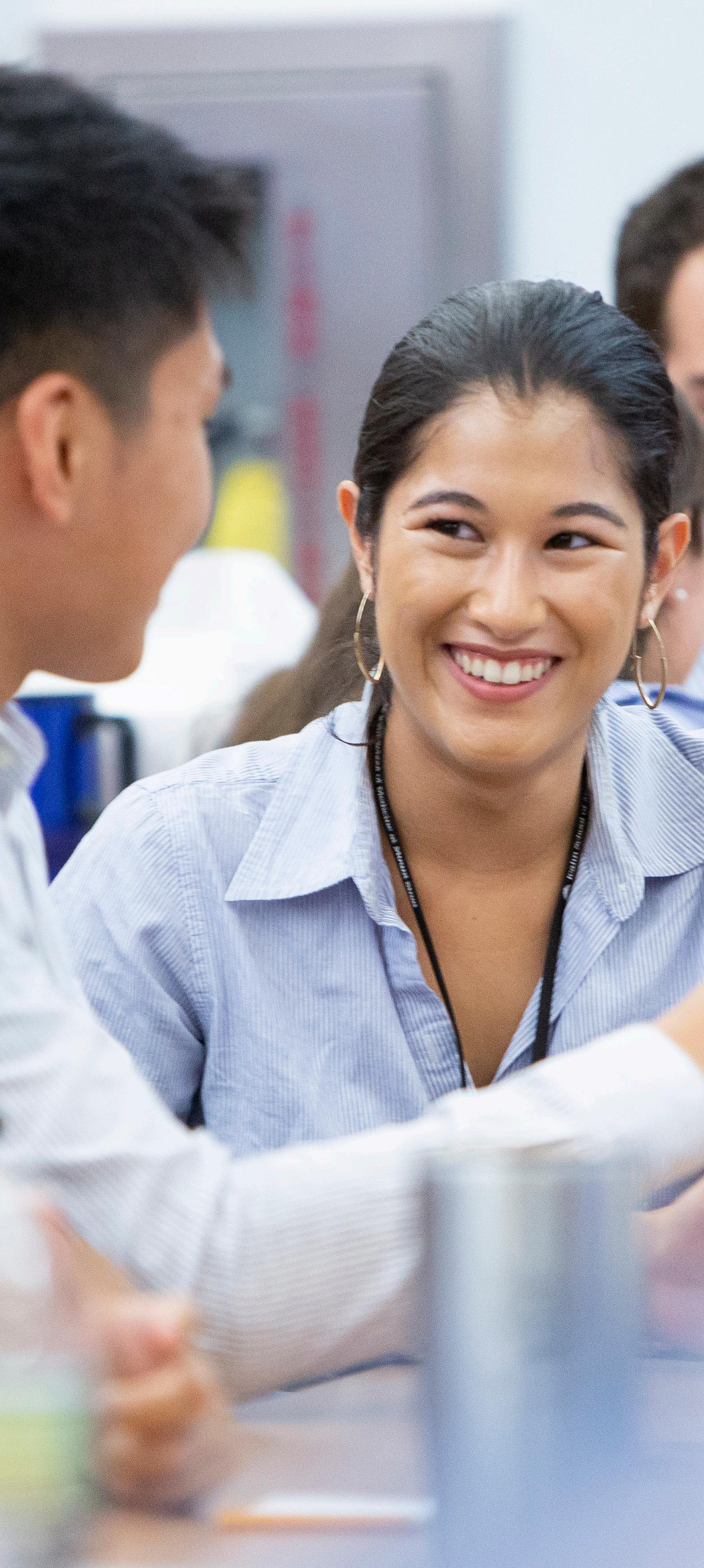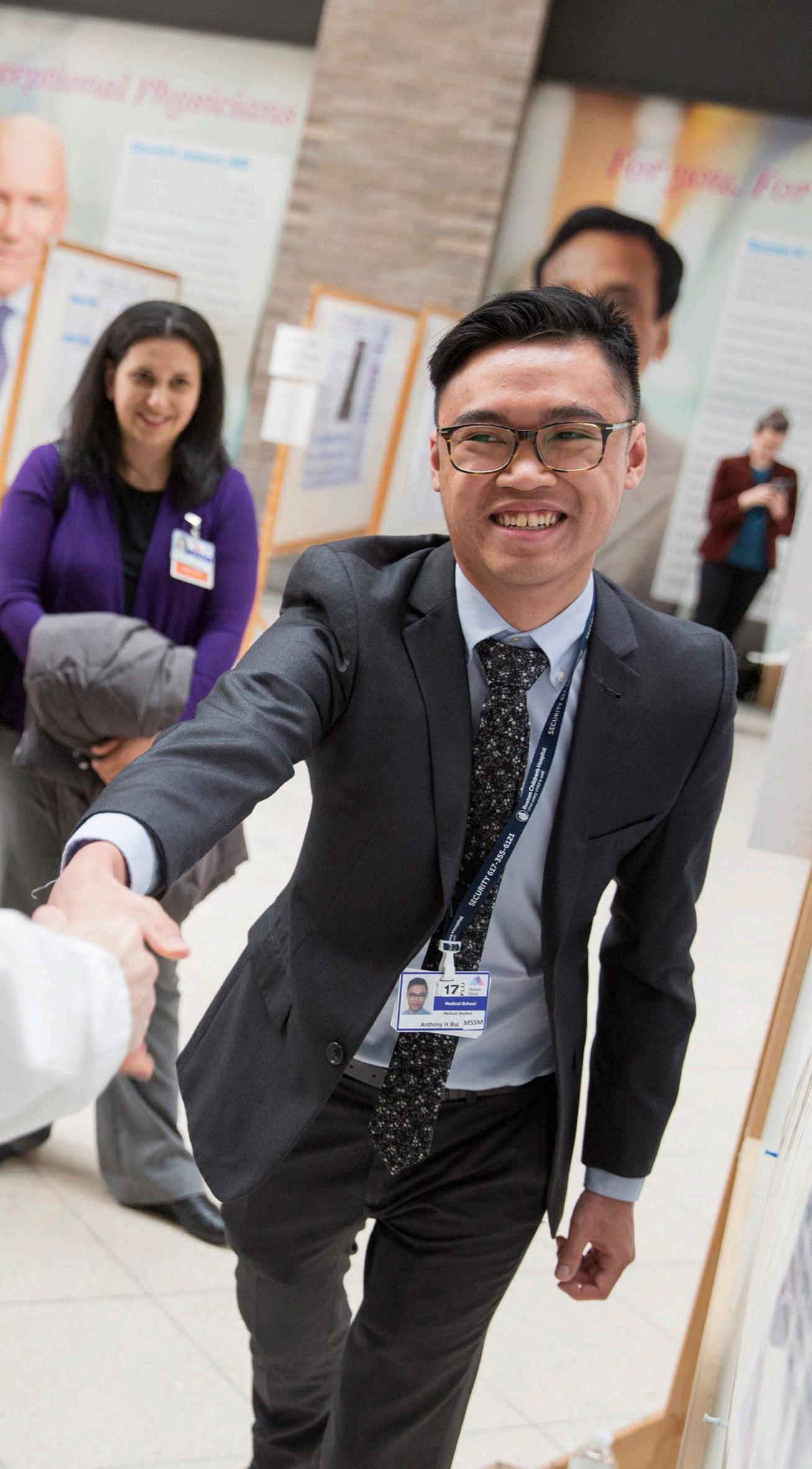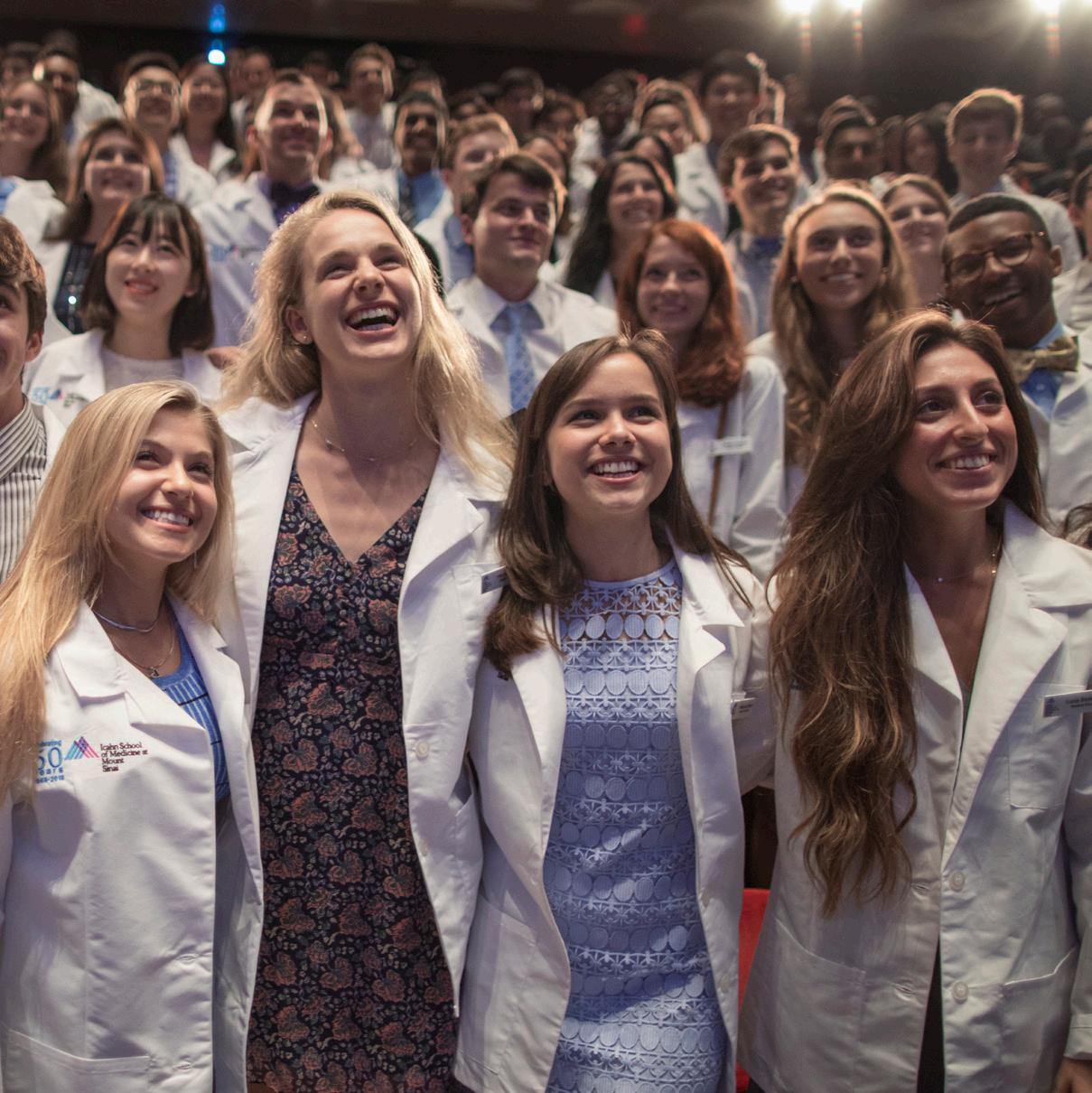Third Year
During this year, your loved one is no longer studying full-time in classes. They will now rotate through various hospitals, clinics, and specialties in order to learn hands-on how to take care of all types of patients. These experiences are called rotations or clerkships. After each clerkship, they will take a national board exam called a Shelf Exam.
Fourth Year: Congratulations!
Your loved one is now in fourth year! This is a year of more clinical rotations and one more national board exam: Step 2CK. During the summer, they will begin the intensive application process to residency training programs in their specialty of choice. By October, they may be interviewing at these programs.

How Can You Support Your Medical Student?
Third year is a time of many new experiences and changes. Students have long working hours, more exams, and are constantly meeting new people. You can be their source of stability during this time, by reminding them that no matter how hectic things get, you will always be there to support them.
Sometimes during clerkships students may experience difficult patient situations. They will see a great deal of illness, suffering, and even death along the way. Ask them how they are doing and do your best not to judge their emotional response. Everyone responds differently to difficult situations.
Reassure your student that you will support whatever career choice they make. Choosing a specialty is a very personal decision. We encourage students to choose a specialty that is a right fit based on their interests, personality, and abilities.
HELPFUL DEFINITIONS
Sub-I or Sub-Intern: Fourth-year medical student on a clinical rotation in an area of interest.
Resident: After graduating medical school, your student will become a resident, and start training in their specialty of choice.
Intern: First-year resident
Attending: A graduate of a residency training program. This person is no longer considered to be in training.
Training to become a doctor is a long road. Along the way, your student will frequently face challenges. They will have many successes, but will also have some disappointments. Working together, we can make sure that the process will be one of growth. Along the way, we hope that our students learn that in order to take care of others, they must also prioritize taking care of themselves and accept help.
ONE LAST MENTION
© 2019 Icahn School of Medicine at Mount Sinai
icahn.mssm.edu
TIP
TIP © 2022 Icahn School of Medicine at Mount Sinai
Congratulations–your loved one is now in medical school!

White Coat Ceremony
This event is a wonderful medical school tradition where students receive their first white coat and recite their medical student oath. This oath is the first step that joins them to the profession of medicine.


First Year
All students start with anatomy class where they learn about the human body through cadaver dissections. During this first year, your student will take about 25 exams and 8 classes. During this time, you can call your student and ask how they are doing and whether there is anything you can do to ease their stress. Sometimes, just listening and offering a supportive ear is enough. Remember: It is ok if there are ups and downs.
Second Year*
Your loved one will take classes about each organ system in the body and how the organs work together in health and in illness. Students sometimes have several examinations per week. Students also learn theicplinical skills of speaking with patients and families, learning physical examinations, making diagnoses, and deciding on treatment plans. They continue to be involved in all of their other activities, which might include research, community service, global health, human rights, and spending time with mentors. Towards the second half of the second-year, your student may begin studying for one of the hardest examinations they will ever take: Step 1. Some students choose to take this exam at a later time. Studying for this exam can be one of the most stressful periods for students, with many of them studying all day.
Medical school is challenging and students often find themselves with very little time for anything other than studying. At times, your student may not be able to talk on the phone or come home for a visit. But remember: Your love and attention are more important to them now than ever before. They just need to prioritize their schoolwork. You can support them by asking what you can do to help ease some of their burden. Make sure you remind them that it’s ok to take breaks and prioritize self- care.
Students take about 6- 8 weeks to study full-time for Step 1. This is an academically and emotionally challenging time. It is helpful when families have an understanding of the exam’s importance and support students by not placing additional responsibilities on them.
*
Medical School is quite challenging, and support from family and friends is more essential than ever to ensure their success.
TIP
TIP




